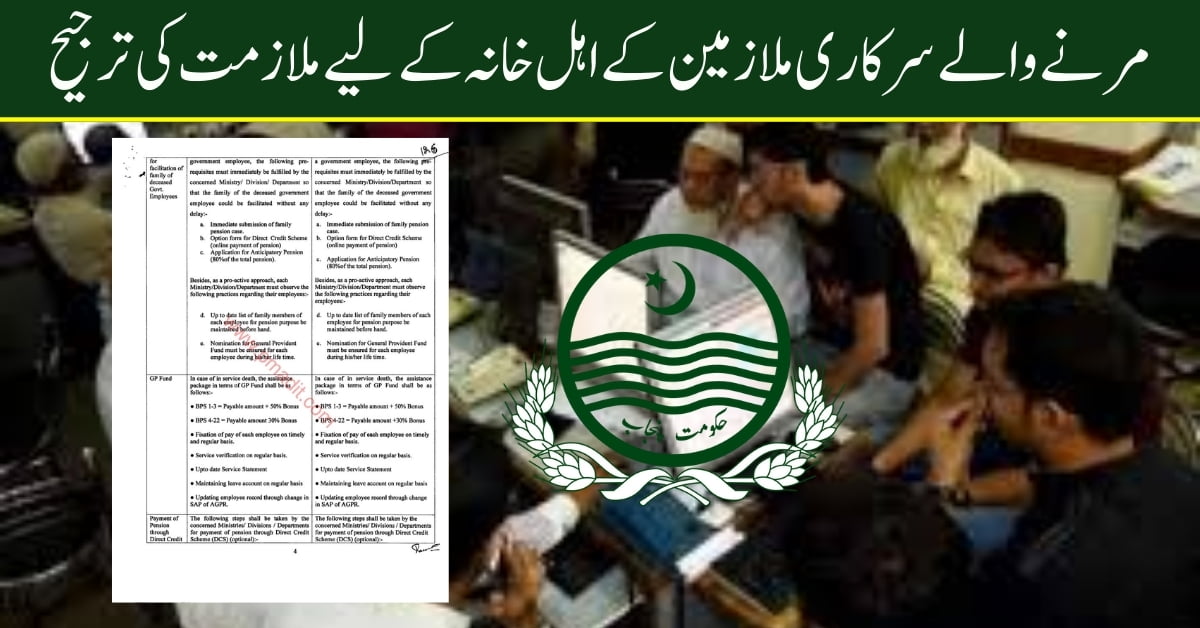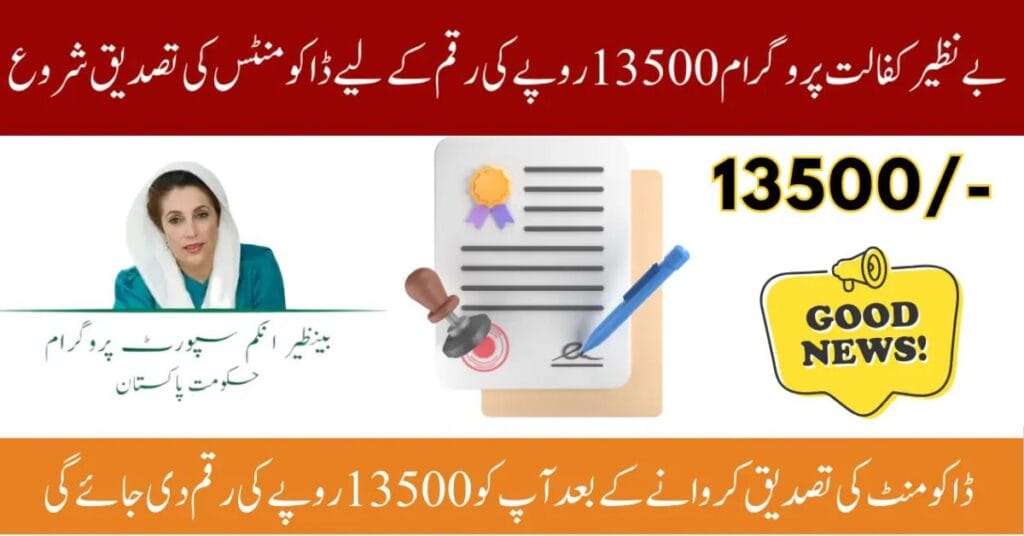The Punjab Government has recently made a significant change to its rules for government workers, sparking considerable discussion. They have removed Rule 17A, which granted special Job Preference For Families of deceased government workers. This change is crucial and raises questions about its impact on affected families and government hiring practices.

Understanding the Job Preference For Families
For nearly 50 years, Rule 17A from the Civil Servant Rules of 1974 supported the families of deceased government workers. This rule was more than just guidelines; it was a commitment to job security and financial stability. By offering job opportunities to the close relatives of deceased civil servants, Rule 17A helped families manage financial challenges after losing their primary income provider.
For many, this rule was a critical safety net. It ensured that the death of a family member did not lead to a loss of income. Thus, it provided continuity and support during a time of personal change. The removal of this rule marks a significant shift in how the government aids its workers’ families .Explore how Rule 17A affected families here.
The Consequences of Eliminating Rule 17A
Removing Rule 17A is more than just a minor change; it will significantly impact many families in Punjab. Immediately, spouses and children of deceased government workers will no longer have access to government jobs. Previously, these family members relied on Rule 17A for employment, which offered them steady income and financial security. Learn more about recent government policy changes here.
Without this rule, these families now face the challenge of finding alternative employment. In the current job market, the absence of Rule 17A’s special access might hinder their chances of securing good jobs, especially if they lack education or experience. As a result, financial difficulties may worsen, increasing stress and uncertainty.
Job Opportunities in the Government
The removal of Rule 17A may also affect job opportunities within the government sector. For many years, this rule provided stability and support to families who lost a member working for the government. By eliminating this rule, the Punjab Government signals a shift in its approach to providing job benefits.
This change might make it more difficult for the Job Preference For Families of deceased government workers to find government jobs. Given the tough job market and the loss of the job quota, these individuals may struggle to find jobs with similar stability and support. Consequently, this could lead to more financial problems for families who relied on government job security.
The Reason for the Decision
The Punjab Government has not provided a detailed explanation for removing Rule 17A. Typically, such changes occur due to budget constraints, administrative efficiency, or shifts in government priorities. They might be aiming to simplify government employment and save state resources.
However, without a clear explanation, the full reasons for this decision remain uncertain. One thing is clear: removing Rule 17A represents a significant change affecting former government workers’ families.
ALSO READ: Solar Panel Prices Decreased in Pakistan 2024
Possible Effects of Changing the Policy
The removal of Rule 17A raises important questions about future government support for these families. Without this job quota, there may be increased discussion about the adequacy of current support systems. Thus, it is crucial to address how the government can manage its budget while adequately supporting families who have lost a government worker.
This change might also prompt the exploration of new support methods. Although Rule 17A’s removal eliminates one form of assistance, it could lead the government to consider alternative support measures, such as financial aid or educational support
Furthermore, this policy change may lead to a broader examination of government employment policies. By removing Rule 17A, there could be a push to reassess how the government supports its workers and their families, potentially leading to new programs aimed at improving support.
A Request for Conversation and Review
The removal of Rule 17A is a significant decision that affects the families of deceased government workers and the broader employment system. As these families adapt to the new situation, it is essential to maintain dialogue about available support. The government should consider how this change impacts these families and explore alternative support options.
At the same time, this policy change highlights the need for a review of benefits and support systems for government workers. Removing Rule 17A underscores the importance of adapting government policies to societal needs, ensuring these changes are implemented thoughtfully.
Adjusting to the Changed Job Market
The Punjab Government’s decision to remove Rule 17A marks a major shift from a long-established policy that provided essential support to families of deceased civil servants. This change will undoubtedly create challenges as these families navigate the new job market and seek alternative support.
As the government implements this policy change, it is crucial to continue the conversation and review the support systems available. The removal of Rule 17A should not end the discussion but rather initiate a broader dialogue. Ensuring that the families of civil servants receive the support they need and deserve is essential. The government must balance careful spending with compassion, demonstrating a commitment to the well-being of its employees and their families.



